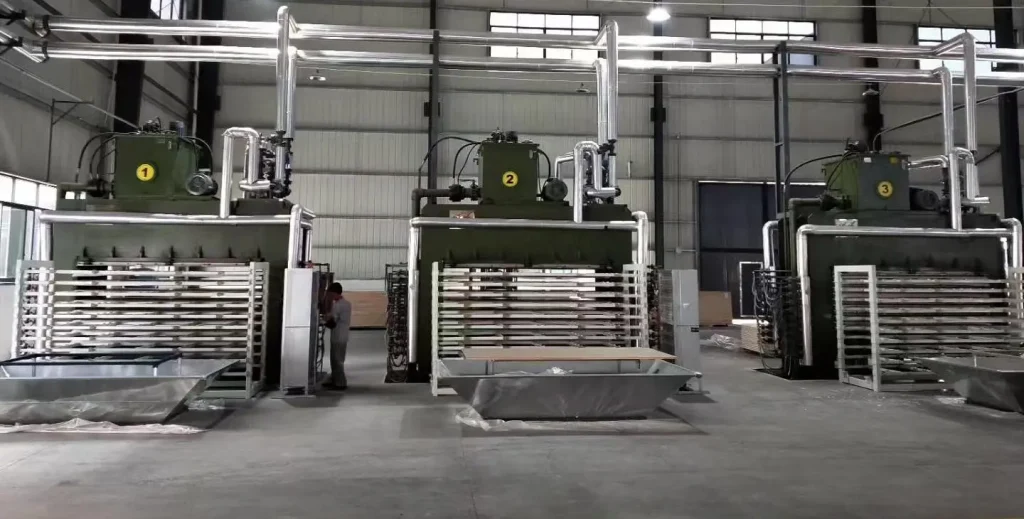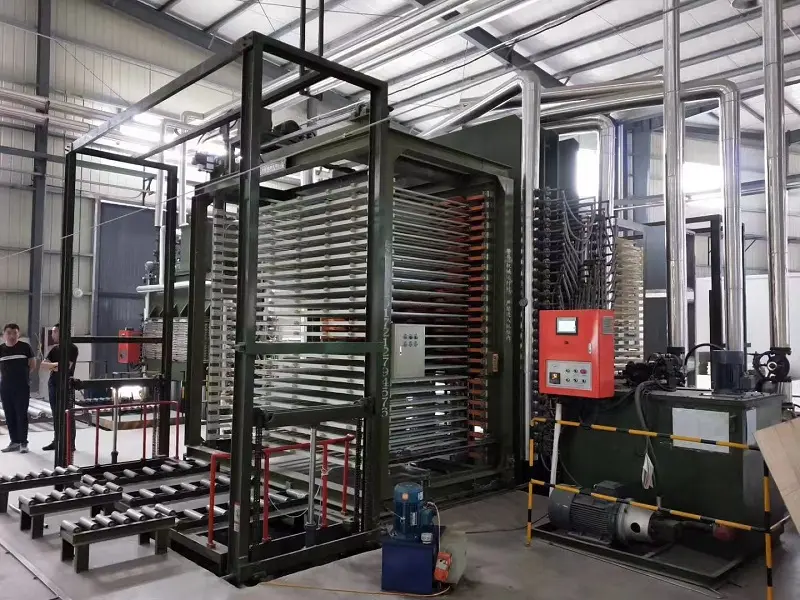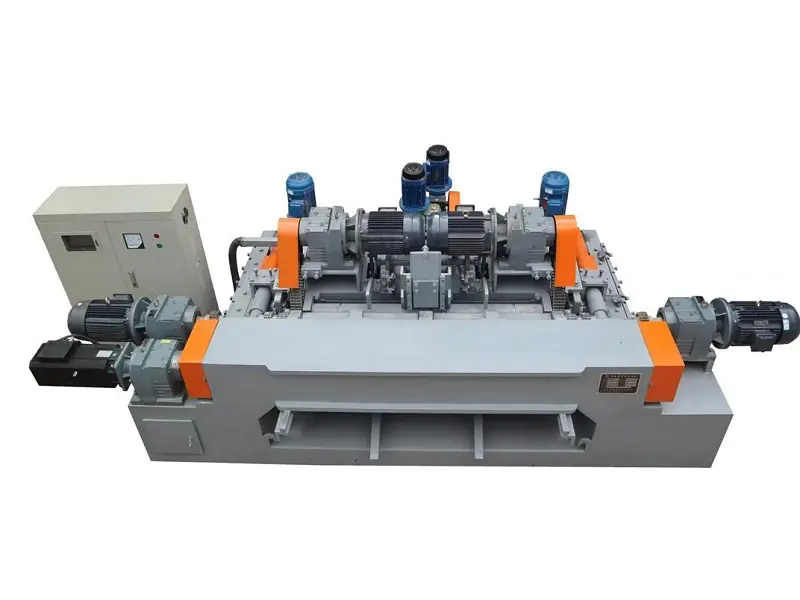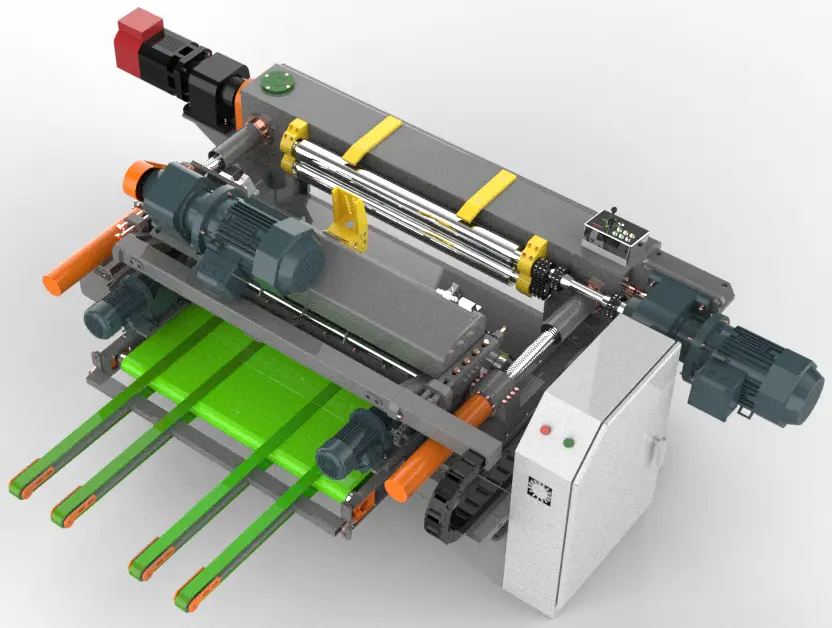In the plywood production process, the Hot Press Machine for Plywood plays a crucial role, and its performance directly impacts the quality of the plywood. TMC Machinery, as an industry leader, deeply understands how various factors related to the Hot Press Machine for Plywood influence the quality of the plywood. This article provides a brief explanation focusing on pressure and temperature.

The Impact of Abnormal Pressure on Plywood Quality
Excessive Pressure:
1.Adhesive Extrusion: Excessive pressure can squeeze the adhesive out from between the veneers, causing uneven distribution of the adhesive, reducing the effective bonding area, and weakening the strength of the plywood. If the pressure is too high, the adhesive may even penetrate the surface, resulting in surface contamination and defects.
2.Internal Structure Damage: The wood fibers may be over-compressed, leading to deformation or damage to the internal physical structure, which affects the plywood’s elasticity and toughness, and compromises both the appearance and dimensional accuracy of the product.
3.Increased Warping Risk: Due to excessive internal stress, the plywood is more likely to warp or deform after cooling.
Insufficient Pressure:
1.Insufficient Bonding Strength: The adhesive cannot fully cure or penetrate, leading to weak bonding between the veneers, making the plywood prone to delamination or peeling.
2.Low Density and Hardness: The wood fibers are not adequately compressed, resulting in low overall density and hardness, which weakens the plywood’s mechanical properties.
3.Poor Flatness: Insufficient pressure may prevent the veneers from bonding closely together, resulting in bubbles, gaps, or uneven surfaces on the plywood.
4.Reduced Moisture Resistance: The internal structure is less dense, allowing moisture to penetrate more easily, thus lowering the plywood’s moisture resistance.
It is important to note that after the pressing process, the speed at which the pressure is reduced from the balanced pressure to zero should be controlled. This process should be gradual to ensure an appropriate temperature drop. If the pressure reduction is too rapid, it can lead to bubbling.
The Impact of Temperature on Plywood Quality
Excessive Temperature:
1.Damage to Adhesive Performance: Excessive temperature can cause the adhesive to cure too early, affecting its bonding properties, leading to delamination or peeling. In severe cases, the adhesive may burn, causing the plywood to emit a bad odor.
2.Wood Fiber Deformation: High temperatures can excessively soften or damage the wood fibers, causing the internal structure of the plywood to loosen, which reduces its strength and toughness.
3.Surface Quality Issues: Excessive temperature can cause the plywood surface to burn, discolor, or become uneven, negatively affecting the appearance quality.
4.Increased Risk of Bubbling: If the temperature is too high, moisture inside the plywood may evaporate too quickly, possibly forming bubbles or blisters, which can affect the overall performance of the plywood.
Insufficient Temperature:
1.Insufficient Bonding Strength: When the temperature is too low, the adhesive cannot fully cure, leading to weak bonding between the veneers and making the plywood prone to delamination.
2.Low Density and Hardness: The wood fibers do not soften or compress enough, leading to low overall density and hardness, which weakens the mechanical properties of the plywood.
3.Poor Flatness: Due to incomplete curing of the adhesive, the plywood surface may be uneven, or even form bubbles.
4.Reduced Moisture Resistance: The internal structure is not dense enough, allowing moisture to penetrate more easily, which reduces the plywood’s moisture resistance.
TMC Machinery, a leader in providing advanced machinery solutions, understands the importance of precision in the hot pressing process. Our Hot Press Machine for Plywood ensures optimal performance, offering high-quality results for plywood manufacturers.
For more information, visit our Hot Press Machine for Plywood product page.



